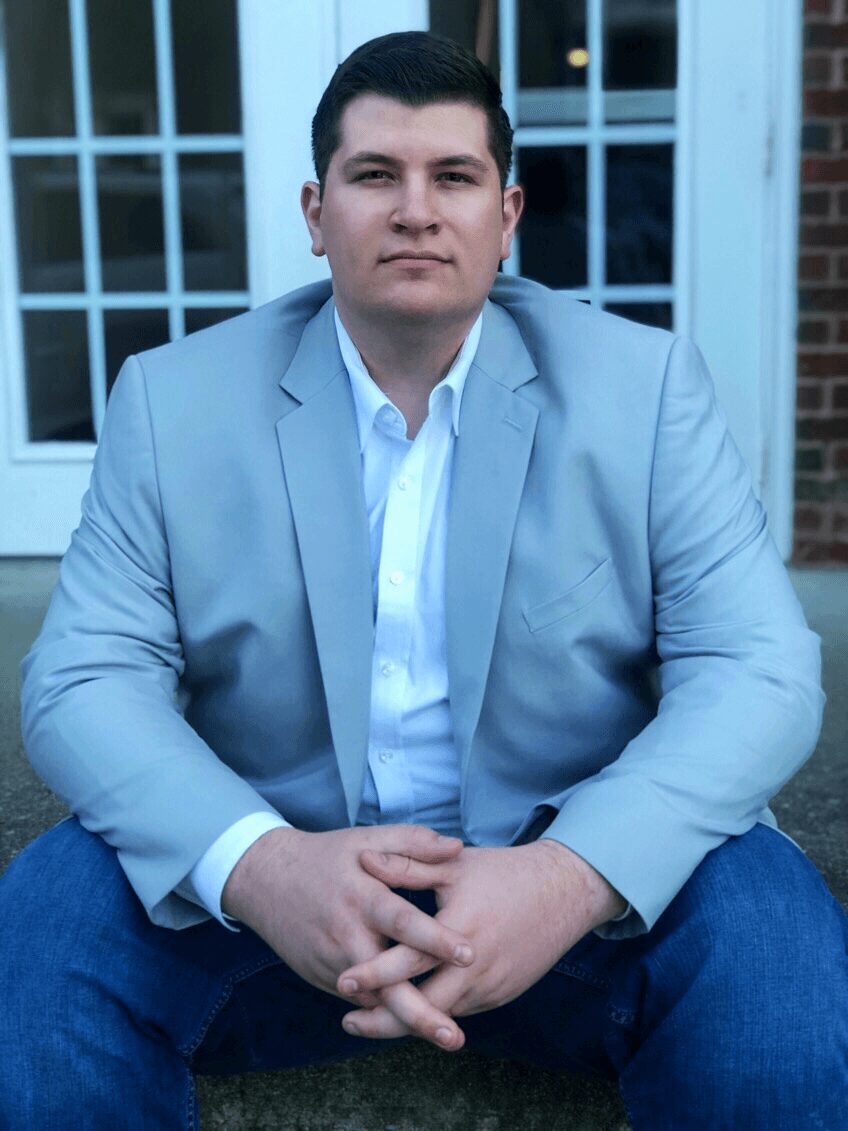We were lucky to catch up with Logan Ryles recently and have shared our conversation below.
Logan, thanks for taking the time to share your stories with us today Did you always know you wanted to pursue a creative or artistic career? When did you first know?
I have a vivid memory of sitting in my old GMC after a hard day’s work on a neighbor’s farm. I was sixteen, and only a year prior I had finished my first novel. It was an epic fantasy, a gargantuan volume that was never published. Writing that book was a whirlwind adventure that had consumed every spare moment of my time, and brought me a strange sort of joy I’d never before experienced. I always knew I was a creative, but up until I wrote that book I thought my creative ambitions lay more in the realm of becoming an inventor. Writing that fantasy book opened a new world of possibilities, and sitting in the quiet that day, listening to the engine tick as it cooled, I knew I wanted to be a writer, and I actually recall laughing because I couldn’t believe how easy it was going to be.
Nearly two decades later, you might expect me to be laughing again, because becoming a full-time, career writer is anything but easy. And yes, it has been a tremendous (TREMENDOUS) amount of hard work, sacrifice, and dedication. Despite that, I have to agree with my sixteen year old self. It has been easy, not because the work is easy or the industry is easy (it’s certainly not) but because this is the path I was meant to follow, and when you work a job you love, you truly never work at all. I believe there’s a difference between “difficult”, and “hard”. My job as a novelist is difficult. It’s challenging, intensive, and tiring. It requires a lot of time and energy. But’s it’s not hard. I’m not swimming upstream against myself all day long, doing work which I wasn’t created to do. I’ve had those jobs before, and many of them were not at all difficult. But they were very hard, and they exhausted me in ways a twelve hour writing day never can. I don’t think I understood any that as a sixteen year old, but maybe I had a glimpse of it, and I’m eternally grateful for that glimpse setting me on this path. It’s been a chaotic journey, but I wouldn’t trade a day of it for any other life.
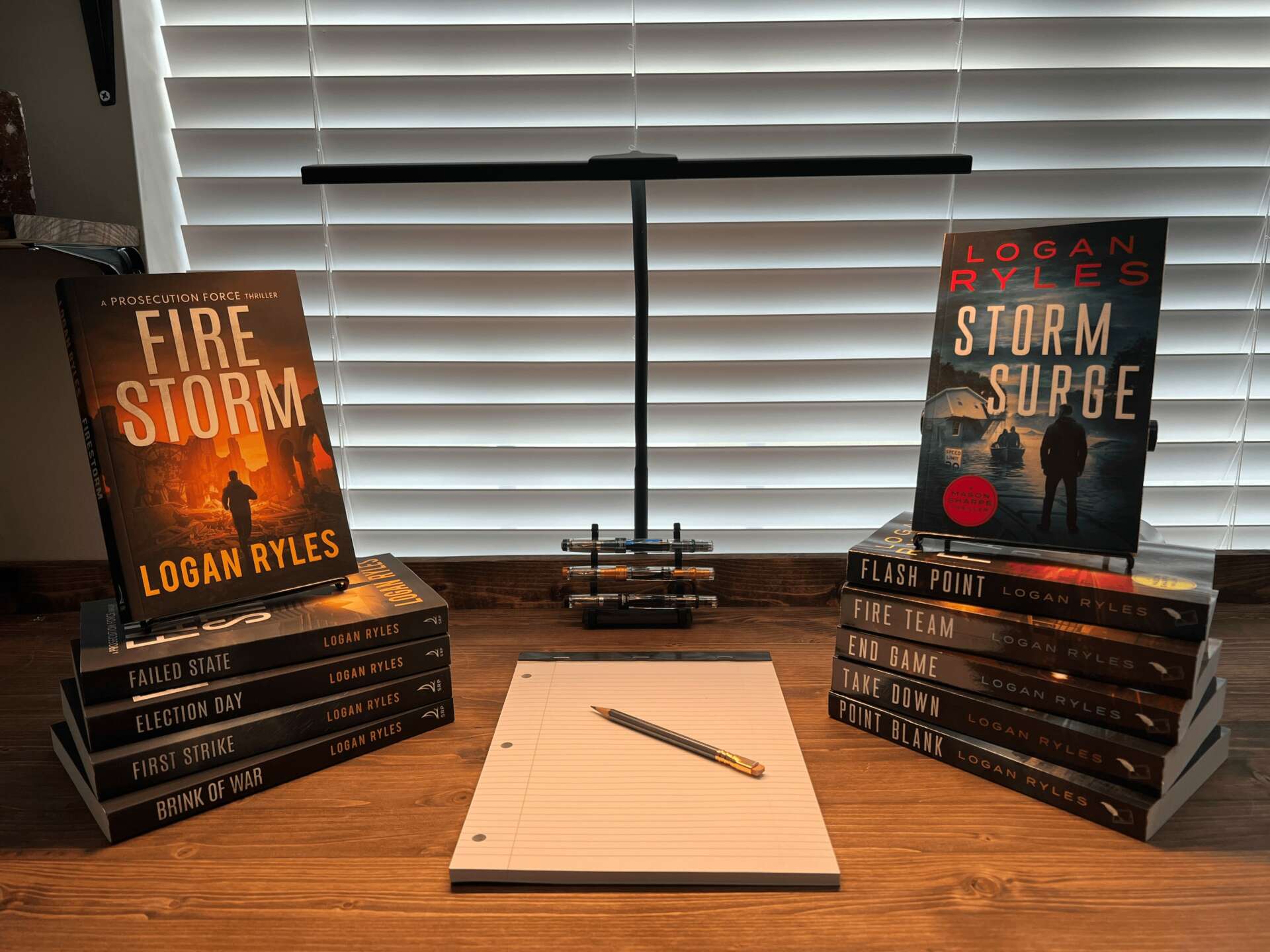
Logan, love having you share your insights with us. Before we ask you more questions, maybe you can take a moment to introduce yourself to our readers who might have missed our earlier conversations?
I’m a writer of thrillers—not one specific sort of thriller, but any sort of thriller that conveys the story I have in my head. To date my work has spanned across the espionage, geo-political, small-town mystery, and vigilante justice sub-genres with twenty-seven books published, and many more on the way. My journey as a writer began in the fantasy genre, and took a tour through historical fiction before landing in the thriller world, where I’ve been happy as a clam ever since. I’m not sure what it is about thrillers that appeal to me so intrinsically, but I think it’s probably the nature of the human experience placed under the microscope of extreme circumstances. I’m a big believer that all great stories are character-centric stories, because story itself is nothing more or less than a portrait of the human experience. Thrillers specifically offer me the opportunity to bring my readers a sample of that experience expressed through all the crazy possibilities that I sincerely hope none of my readers actually endure—terrorist attacks, bank robberies, kidnappings, and crimes of passion. They say that when you’re squeezed, what comes it is who you truly are, and thrillers are nothing but one giant squeeze for my characters. Exploring how those characters will react, and challenging myself and my readers to consider how we ourselves might react in similar conditions, is what makes a thriller so exciting for me…and hopefully for my readers, also.
In addition to writing colorful characters, I’ve also carved out a niche for myself in the action sphere of the thriller world. Regardless of what sub-genre I’m writing in, all my stories tend to contain a lot of action. Car chases, plane crashes, gun fights, and races against the clock. Again, it’s all about the context we dump characters into. Some of my heroes will run a truck straight through a building to catch a bad guy. Others will take it slow and lay a trap instead. People are different, but my readers love an adrenaline rush, and they love it even more when it comes in the context of characters they truly care about. It’s my job to deliver on that expectation, and I have a ton of fun doing so.
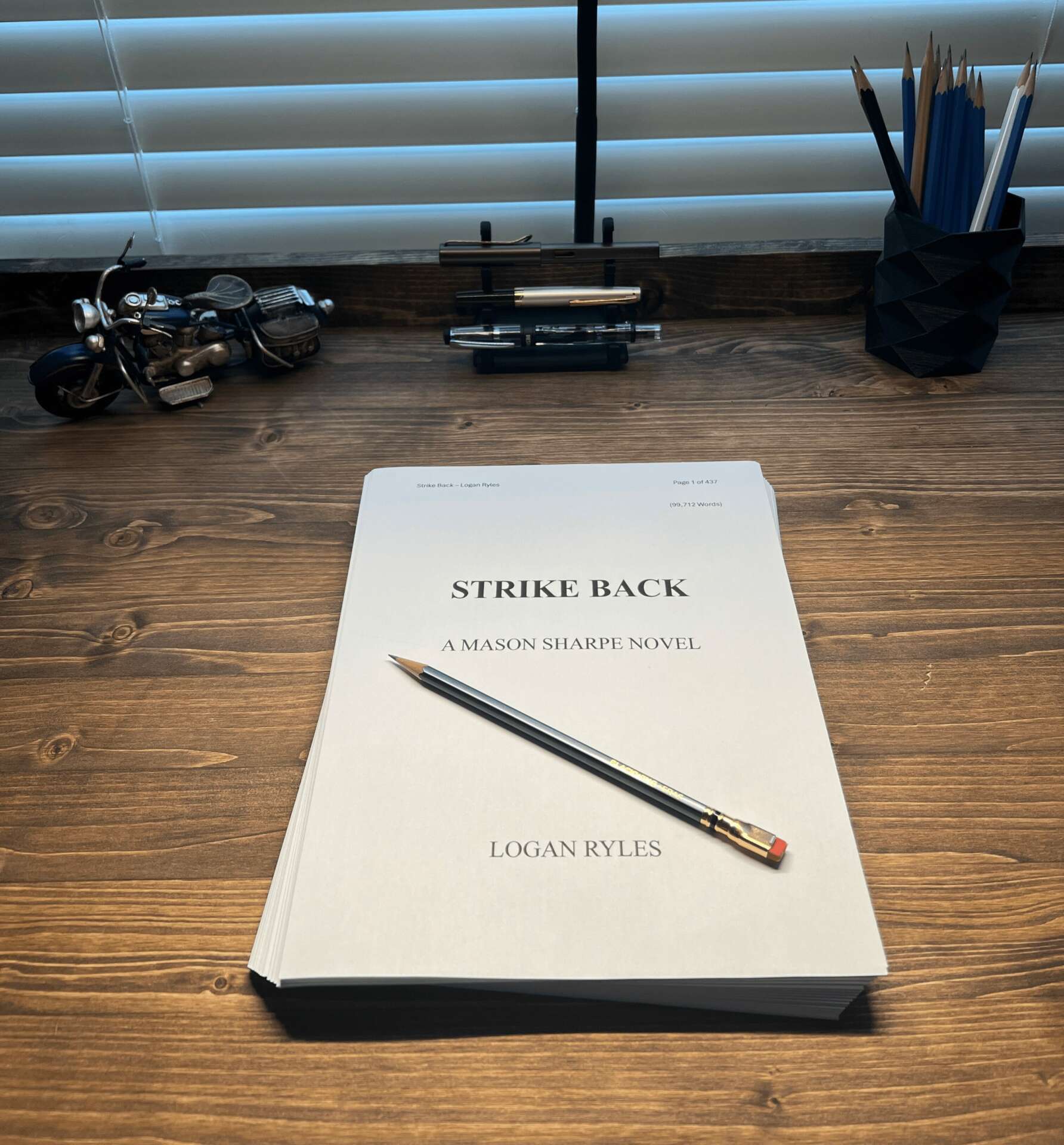
In your view, what can society to do to best support artists, creatives and a thriving creative ecosystem?
I’d like to cheat a little and begin this question in reverse, because I truly believe that the cornerstone of commercial success as a creative is to approach society with the heart and mindset of a servant. It’s not about us, it’s about them—the reader, viewer, consumer. I don’t mean that we should reduce our work to calibrated, lifeless replications of whatever we think society wants. That would be terrible. What I mean is that, in my view, artists should always create with the mindset of serving society well. Bringing new, bright, beautiful things into the world that make the world a better place, and bring true joy to those who consume them. If you approach your work with that mentality, and really work hard to serve society well, society will inevitably reward you with some degree of commercial success. You may not become the next super star in your industry, but you will find people who enjoy and appreciate your work, and are willing to pay for it. Many of my readers have become dear friends, but when it comes time to go to work in the morning, I view them as customers. I ask myself: How can I serve them best? Is this plot twist really as sharp as they deserve, or can I do better? Does this description of a city accurately represent it, and honor those who live there, or should I do more research?
When you ask those sorts of questions, you’re on the right track. I can’t control how society responds to my work, so I don’t often consider how society could better support me, but if anyone is interested I would suggest that the very best things you can do for any creative is to introduce their work to a friend. Not only does this sort of grass roots exposure grow a career better than any advertising known to man, it’s also a huge compliment. When a reader emails me and says that they’ve shared my work with a friend, I feel like a rock star, and I can’t wait to get started on the next project.
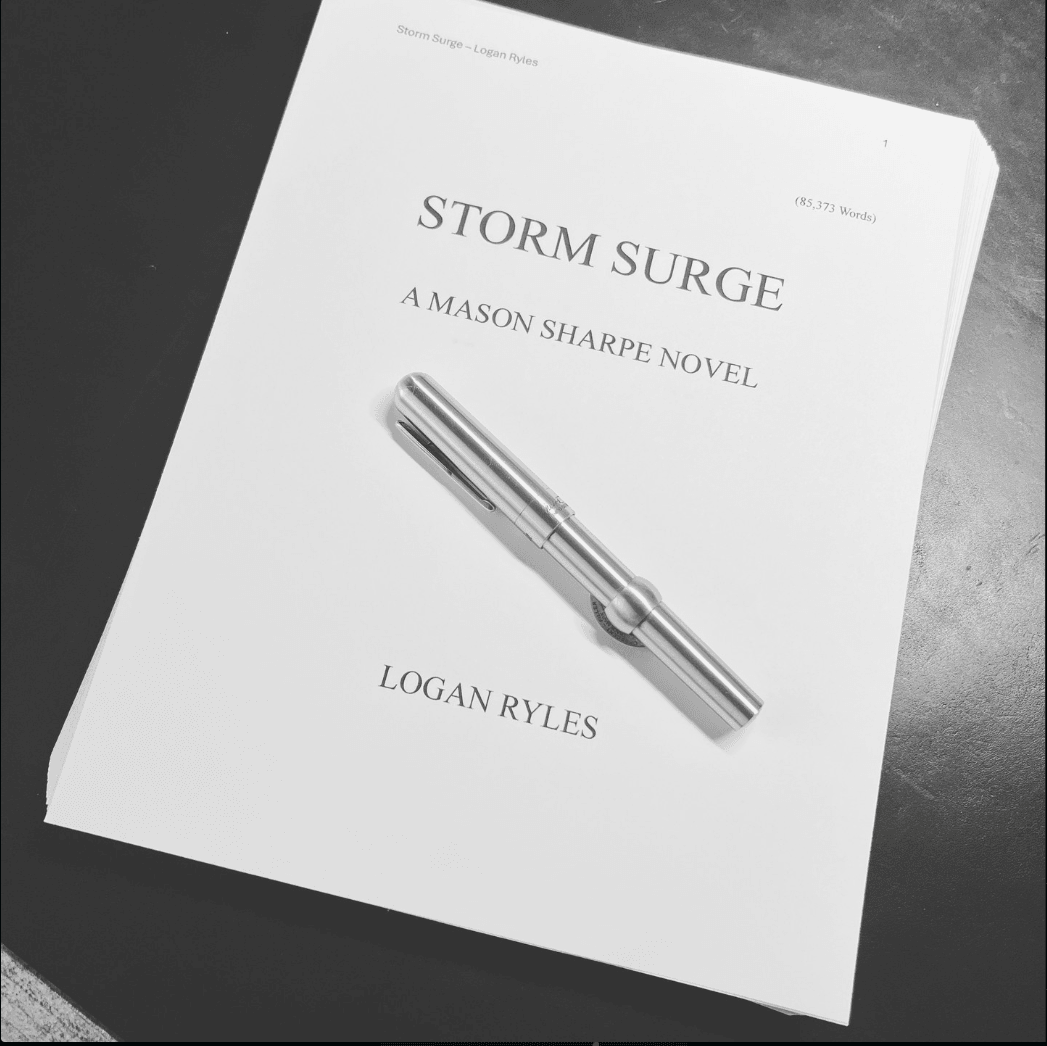
Let’s talk about resilience next – do you have a story you can share with us?
I remember one day when I was dropping my wife off for work in downtown Nashville. I had two or three books published at the time, and wasn’t anywhere close to achieving a full-time income stream. I spent my days driving Uber, then I would pick up my wife, go home, and write. I was tired. I was very disheartened. I felt like I’d hit a block wall and I wanted to quit. She looked me in the eye and told me to keep going—that she believed in me, and wasn’t going to allow me to quit.
I did keep going, and about six months later I started to gain traction. A year later I completed my last Uber ride and I’ve been a full-time writer ever since. You could certainly say that this story demonstrates my wife’s support and belief more than my own resilience, and that would be true. I wouldn’t be here without her. She’s absolutely incredible. But the lesson this moment taught me is that you never know how close you are to success, and at the end of the day only YOU can choose to keep going. Back then I could count on one hand how many people believed in my dream of becoming a writer. Now everyone I know “always knew I would make it”. At one point in my youth, somebody who I (at the time) looked up to actually told me that writing was a great hobby, but I shouldn’t expect to make a career out of it.
What’s the point? People are negative. People are uninformed. People say “you can’t” when what they really mean is “I never could”. At the end of the day you are the only person who can put in the hours, pour in the belief, and keep pushing until you break through. Surround yourself with a very few golden people who believe in you and pick you up when you’re down, and then ignore literally everybody else. It doesn’t matter what they think, they aren’t the man in the arena. You are. So go get it.
Contact Info:
- Website: https://www.loganryles.com/
- Instagram: https://www.instagram.com/logan.ryles/
- Facebook: https://www.facebook.com/loganrylesauthor
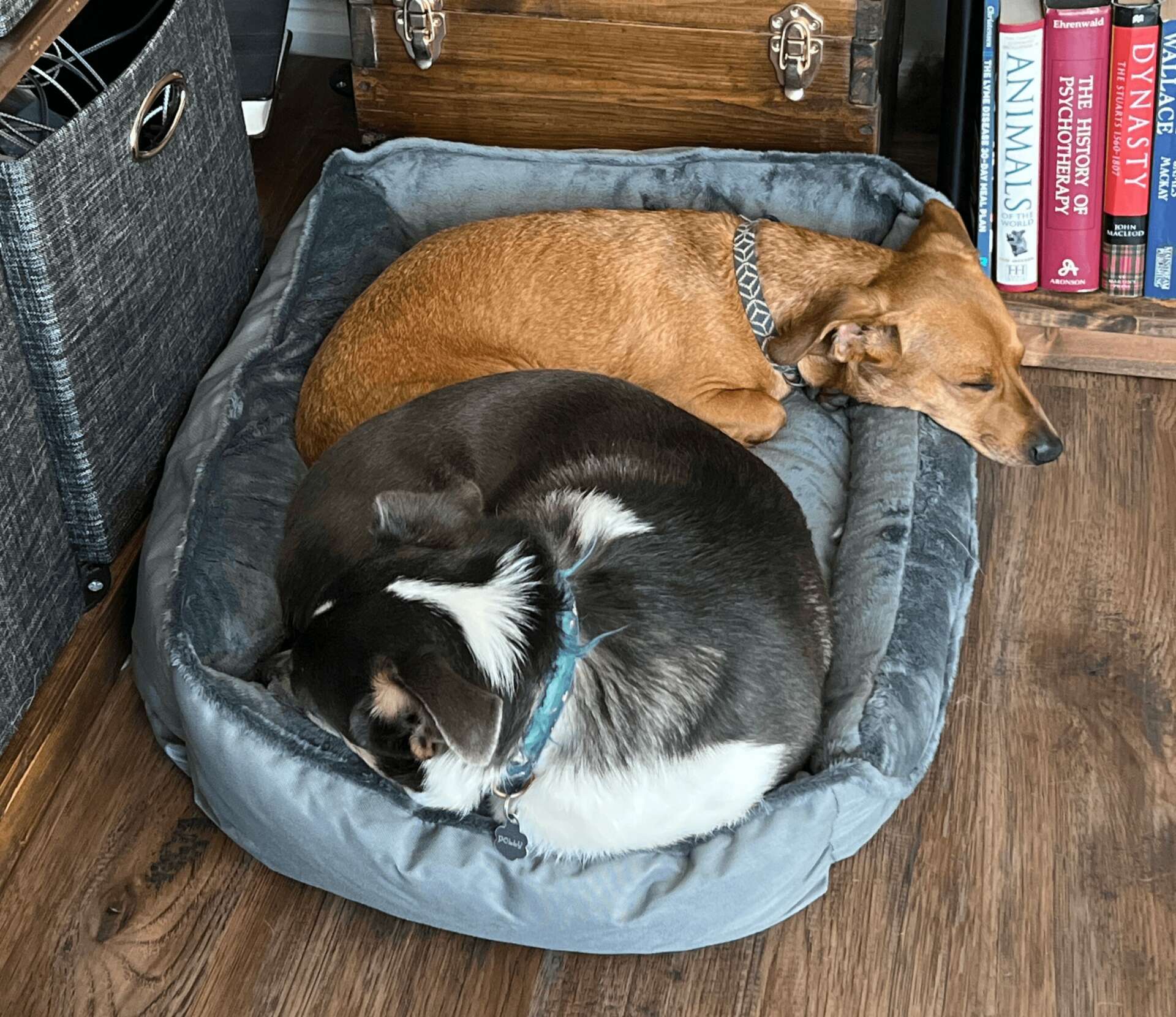
Image Credits
All photographs supplied were taken by either myself or my wife, and we own full rights to use them. You have permission to use them however you see fit for the purpose of this interview.


